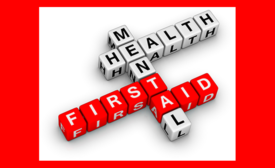Home » stress
Articles Tagged with ''stress''
Siemens rolls out “Life in Balance” program to combat burnout and stress
Effort wins European Union Healthy Workplaces Good Practice Awards 2014 – 2015
May 1, 2015
Become a Leader in Safety Culture
Build your knowledge with ISHN, covering key safety, health and industrial hygiene news, products, and trends.
JOIN TODAYCopyright ©2024. All Rights Reserved BNP Media.
Design, CMS, Hosting & Web Development :: ePublishing







